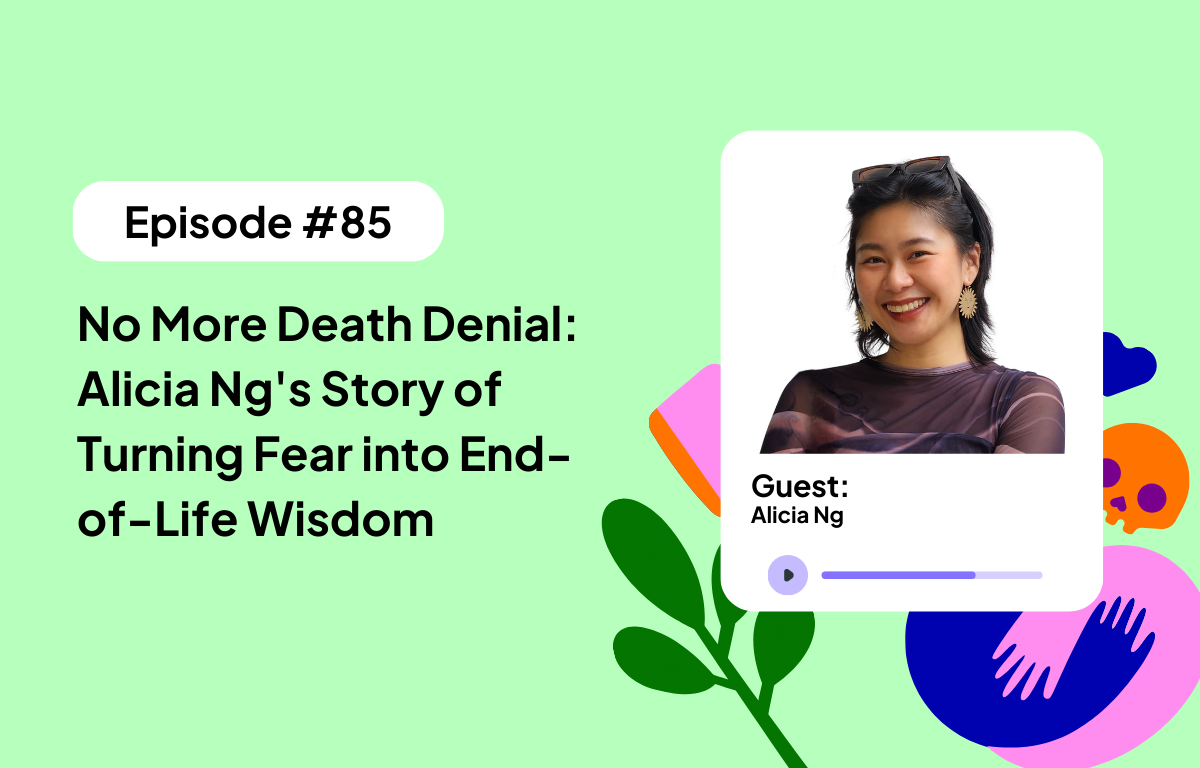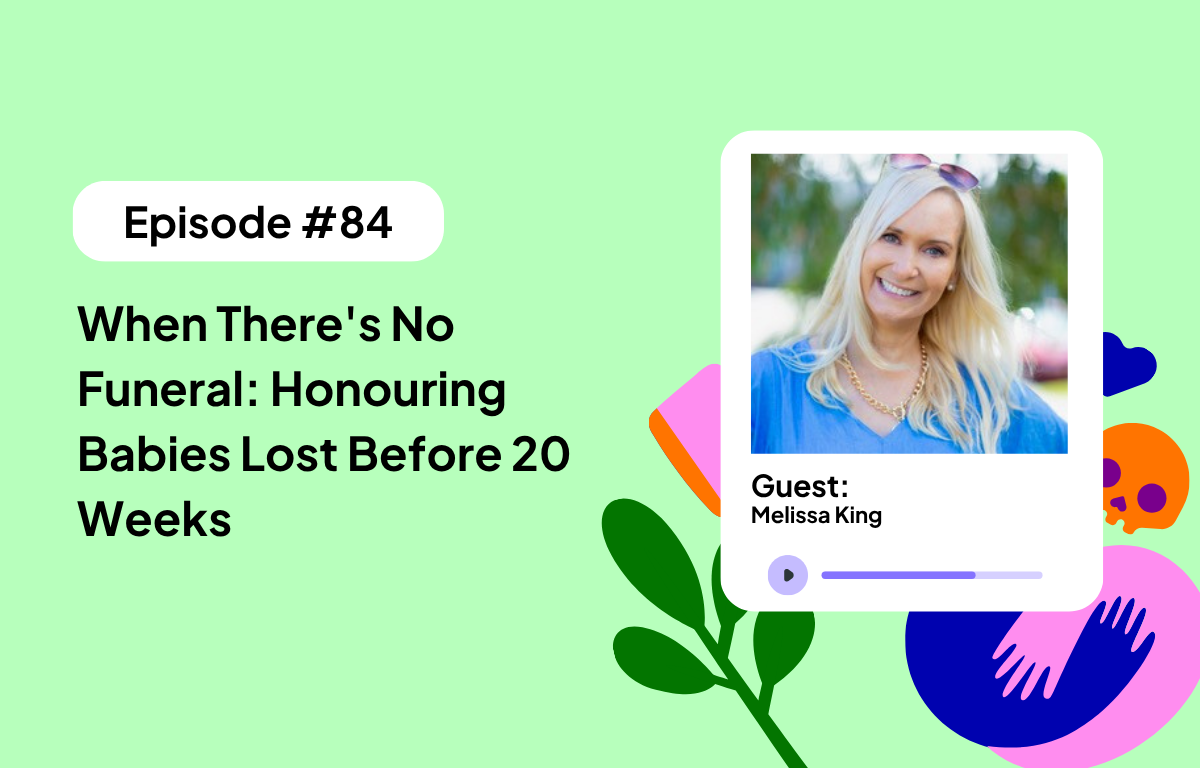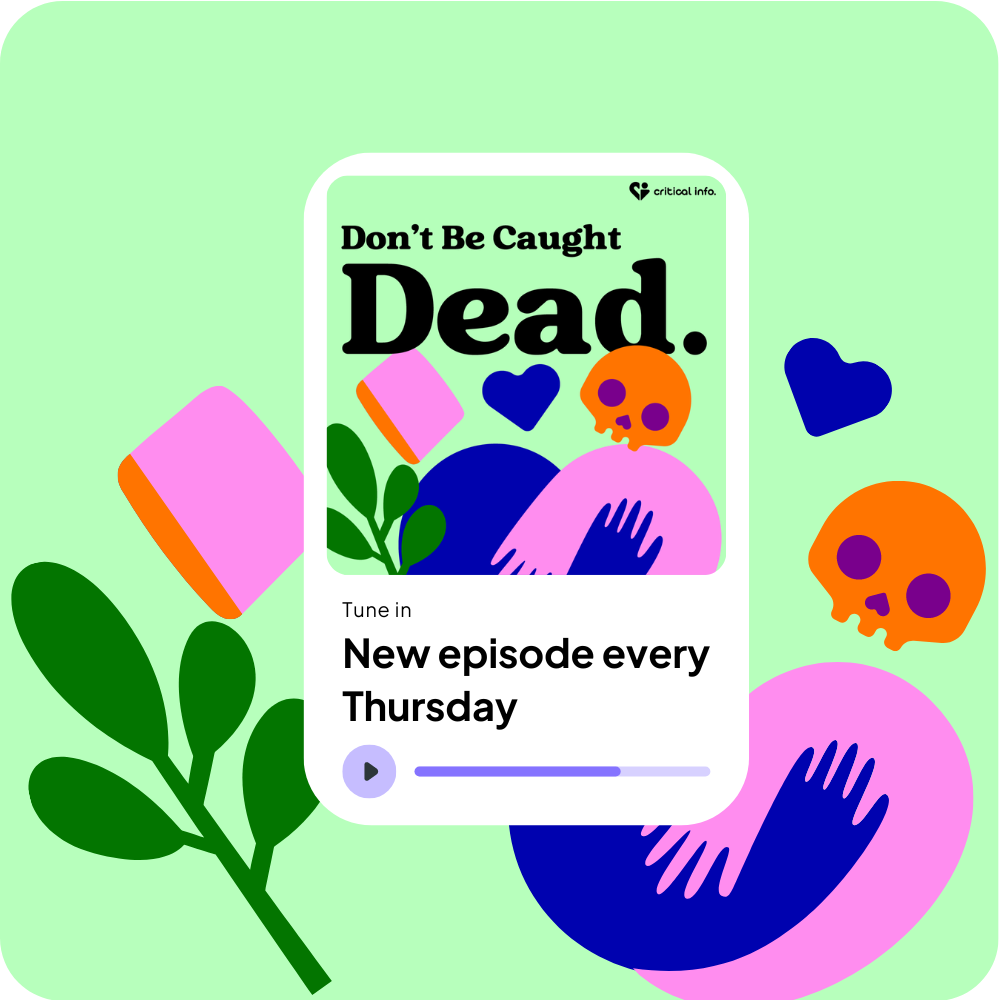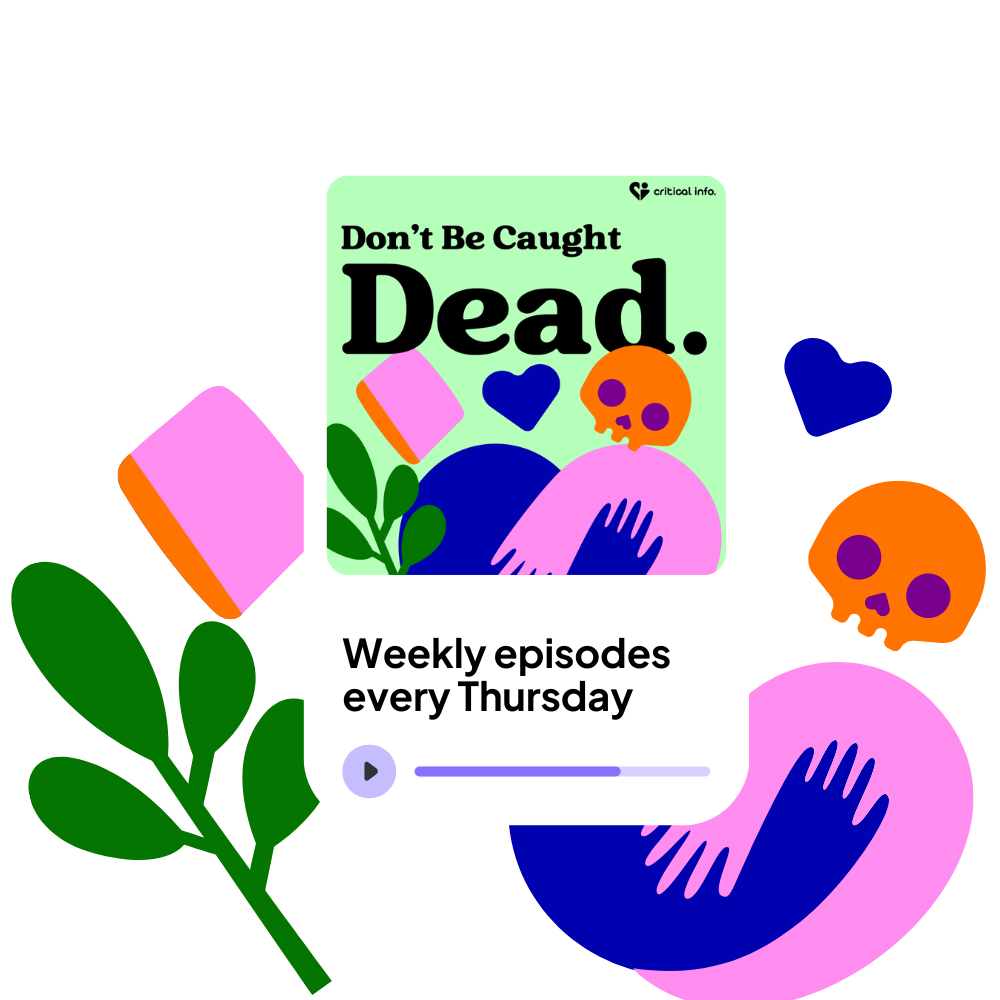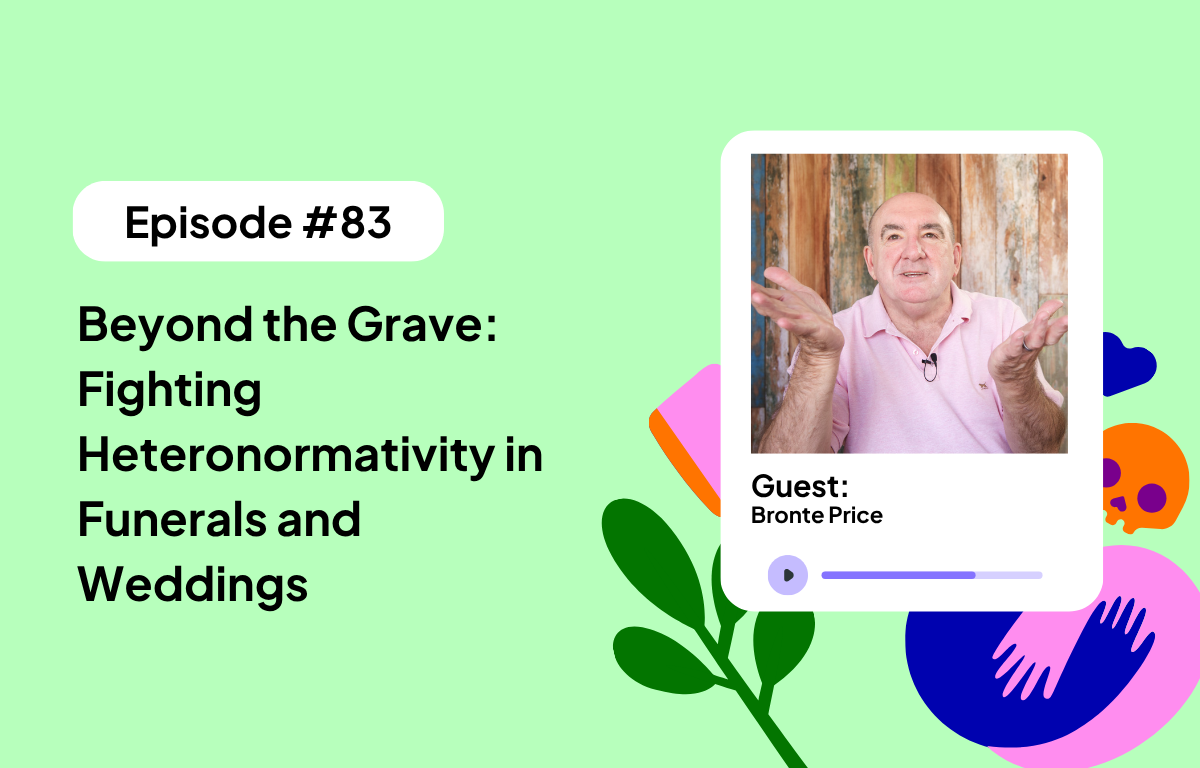Listen now
About this episode
What do you give the love of your life as a final birthday gift when they only have days left? That's the tender moment Reverend Jim Colville shares with us in this powerful chat. It's an act of love that perfectly sums up Jim's radical, non-judgemental approach to life, death, and dying.
Jim, the man who started Colony 47 in Hobart in 1973, joins me to discuss his work offering unconditional acceptance to everyone rejected by 1970s society—from young single mums to the LGBTQIA+ community. He tells us how he fought intense judgement, even being called a communist for painting a church door red! Jim's ministry has always been unconventional.
He shares beautiful insights on supporting people through traumatic, sudden death, and why silence is often better than trying to talk. Jim also recounts the deeply personal story of caring for his wife, Margaret, as she was dying from lung cancer. This led to his final, most enduring gift to her: a hidden tattoo he showed her just before she died. Tune in for a powerful, funny, and unforgettable chat about facing death and finding humanity in the toughest times.
Remember; You may not be ready to die, but at least you can be prepared.
Take care,
Catherine
Show notes
Guest Bio

Retired Reverend of the Uniting Chruch
When the Reverend James Colville AM opened the doors of Colony 47 in 1973, Hobart was a very different place. There were no gay rights, access to contraception was difficult and people were rejected for being different.
After renting an old church at 47 Davey Street, Hobart, a coffee shop was opened where everyone was welcome and help provided when requested. This included many young people, older people, Indigenous Australians, the lonely, hungry and unemployed.
James believed those struggling with rejection had a lot to give with the right support – they just needed non-judgemental assistance, acceptance and respect.
Fifty years on, Colony 47 has evolved into Home Base, a not-for-profit organisation that continues to deliver programs for Tasmanians in need, with a particular focus on housing. It's helped more than 50,000 households with bond or rental assistance, more than 7000 young people with early intervention support, and more than 17,500 young people with education and employment.
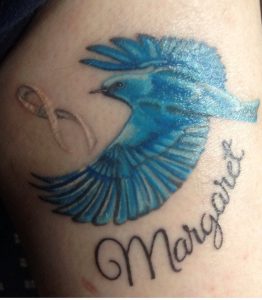
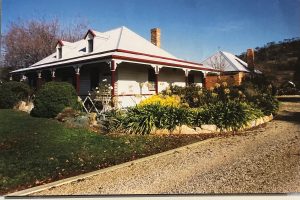
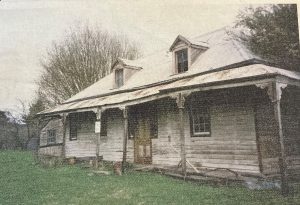
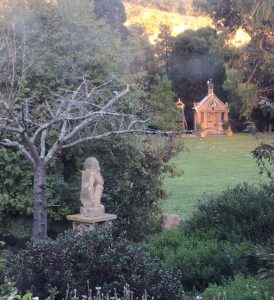
Summary
What you’ll hear in this episode:
- The founding of Colony 47 in 1973 as a hub for non-judgemental acceptance.
- Jim’s philosophy of acceptance and focusing on "what can be" for the rejected.
- The minister's tattoo: a profoundly personal gift Jim gave his dying wife, Margaret.
- The importance of sensitivity, presence, and silence when supporting those grieving a death.
- The legacy of Colony 47, which has now evolved into HomeBase, assisting Tasmanians.
Transcript
Jim Colville: [00:00:00] For 20 years now on my birthday, people say, what are you doing on your birthday? And I say, I'm going to the cemetery. And they can't understand that. But there was a family, they weren't religious. But on my birthday, their daughter was murdered. Catherine: Welcome to Don't Be Caught Dead, a podcast encouraging open conversations about dying and the death of a loved one. I'm your host, Catherine Ashton, founder of Critical Info, and I'm helping to bring your stories. Death back to life because while you may not be ready to die, at least you can be prepared. Don't ... Read More
Jim Colville: [00:00:00] For 20 years now on my birthday, people say, what are you doing on your birthday? And I say, I'm going to the cemetery. And they can't understand that. But there was a family, they weren't religious. But on my birthday, their daughter was murdered.
Catherine: Welcome to Don't Be Caught Dead, a podcast encouraging open conversations about dying and the death of a loved one.
I'm your host, Catherine Ashton, founder of Critical Info, and I'm helping to bring your stories. Death back to life because while you may not be ready to die, at least you can be prepared.
Don't be caught dead. Acknowledges the lands of the Kulin Nations and recognizes their connection to land, sea, and community. We pay our respects to their elders past, present, and emerging, and extend that respect to all Aboriginal and Torres Strait Islander and First Nation peoples around the [00:01:00] globe.
Today I'm speaking with the Reverend James Colville. Most people now call him Jim. That's correct, isn't it now Jim?
Jim Colville: It certainly is, yes.
Catherine: But you first opened the doors of Colony 47 in 1973 in Hobart, and it was a very different place back then. There was no gay rights. Access to contraception was difficult and people were rejected for being different.
And after rendering an old church at 47 Davy Street, Hobart, a coffee shop was open where everyone was welcomed and helped. Was provided. When requested. This included many young people, older people, indigenous Australians, the lonely, hungry, and unemployed. Jim believed those struggling with rejection, had a lot to give with the right support.[00:02:00]
They just needed non-judgmental assistance, acceptance and respect. 50 years on Colony 47 has now evolved into home base, a not-for-profit organization that continues to deliver programs for Tasmanians in need. With a particular focus on housing, it has helped more than 50,000 households with bond or rent assistance, more than 7,000 young people with early intervention support and more than 17 and a half thousand young people with education and employment.
I'm so excited to have a chat with you today, Jim. Thank you so much for joining us.
Jim Colville: Well, thank you for asking me.
Catherine: Jim, I had the opportunity to hear you speak earlier this year at an Aging Australia conference, and what I couldn't believe at that time was how you had such a different approach [00:03:00] and in a period where.
It was very, you know, risque for you to be doing what you were doing. So can you tell me a little bit about that time and, and what motivated you to, you know, found Colony 47.
Jim Colville: Well, thank you. I started it in 1973 and I'm 87 now, so I'm not sure why I got invited to speak at an aging conference, but nevermind.
Um, it was an amazing year 73. It was the year that the, uh, vote was changed from 21 to 18 for young people. Inflation was over 9%. That wouldn't go down too well today. Mm-hmm. Uh, it was the end of the Vietnam War. Through the Paris Peace Accords and the White Australia policy where. People who weren't white weren't allowed into Australia.
That ended that year too. So as well as that, that was the year I started. So it was a very strange place. I originally came from Melbourne. The church told me I could be appointed [00:04:00] from a, a working class area to a very nice area in Victoria, looking out over the water. But actually what they were talking about was East Davenport in Tasmania.
So I finished up there and I was still looking over the same water, but from the other side, and I found the church rather conservative in some areas. There were some good people there, but they rejected anyone that was a bit different. A lot of girls that got pregnant outta wedlock, they weren't accepted by their family and they were rejected.
And often they had to leave and pretend they'd gone to Victoria for a year to have work, but they were actually having a child, you know, and then they had to adopt the child out and, and come back without the child. And that was just one area because contraceptives. We were almost impossible to get. And the reason for that is that a lot of religious people felt that to have contraceptives would lead to a total collapse of the standards and morality of our society.
But that meant [00:05:00] some girls were getting pregnant and finishing up having backyard abortions and some died from it. So I wanted to have a place. Where people were accepted and if they were a gay background or L-G-B-T-Q-I-A, I wanted them to feel that they could be welcomed in to a new place. And to do that, I had to, with the use of young people, raise over $3,000 for one year's rent and to rent a church where we could open the doors to anyone.
Yeah.
Catherine: And tell me a little bit about those, those, you know, first 10 years, Jim. Yeah, I'd, I'd say that there would've been quite a few challenges.
Jim Colville: Yes. The first thing was because I wasn't a minister as doing a minister's role that was accepted by the church, I had to move. When I moved to Colony, there was no income, so I had no stipend and I had, and I lost the parsonage or the mans where the we lived.
So a friend said this, if it [00:06:00] works, it's going to be a wonderful, and if it doesn't work, it'll show you how stupid you are. But it did work. I had to rent a church, and that in itself was a long deal because I couldn't offer as much money as others. But we finally did get it. I was Methodist. This was a congregational church that had closed and we were able to open it.
And then the young people helped me restore it. It was in bad condition. And then we opened the doors and then I made the big mistake of painting the front door red, something new and bright and starting, and I got attacked by the National Trust and by a lot of politicians who thought I was conv. I was a convict, sorry, a communist.
And uh
Catherine: oh, of course, in that time as well, it would've been quite the, yeah, the, the communist color to be painting the front door.
Jim Colville: Worse than that, that year I'd been invited to go to Russia, to Moscow, to a, a Peace Congress. I went there because it was. [00:07:00] To try and follow up peace. But of course that didn't help very much.
And I finished up being the, um, for a few days I was appointed the leader when the, the leader of the Australian contingent was ill. So I finished up in the Kremlin and it was, um, yes, that didn't help with a few at, and they started to, it made it very difficult to get any funding for colony at that stage.
Well, that's, that's a rather difficult because all you can do is do what you feel you should do. And, and I was working with a whole range of young people. And older people too. One area I was working with were Catholic women who had become, were married, they married somebody that bashed them up after a month and the church told them that they had to remain married for the rest of their life.
And in some cases they were being terribly well, you know, it's, it's happening still today, isn't it, within the community. And I worked with them. They still often, I spoke with them and we. Tried to help them [00:08:00] reestablish and find somewhere else to live and protect them. It was also the same case with others that were being very badly treated.
And so you slowly build up, I think, through the number of people that you're working with and helping that starts to give you some credibility because counseling helping a young person who is struggling and close to wanting to commit suicide, and you say to them, no, don't. And you start to convince them that they are worthy of living.
And I always believed in, it's not what is, but what can be. And I think that came from my own experience all my life. I was treated and bullied at school, treated by the teachers that I'd be absolutely useless and hopeless. And that went on. And I think when that comes to you and you're being treated so badly yourself.
You either become one yourself and bully others, or in my case, as some [00:09:00] others have done, you say, I don't want this to happen to other people who are being judged, criticized, and told that they're useless and worthless. And that's why I think you slowly build up over a number of years credibility because you just work with people and they see that you really care for them.
Catherine: And Jim, who was the person that supported you when you had obviously gone through that experience at school and you've spoken very openly about how you were bullied during that period. And where did you find support and where to the raise you up to the point where you were then in a position to be helping others?
Jim Colville: Well, you know, I, I was treated really badly, but then I linked up with a church where they had a cricket team. And at the surprising thing, there was a minister there who had only done about six year training at education. He was the most beautiful, wonderful person you [00:10:00] can meet anywhere. And he showed that.
He thought that there was potential in me, and if he had have come along a little later, they wouldn't have even accepted him to be in the ministry because he didn't have a matric or matriculation or anything else. So there was somebody that had been judged in some ways but was such a beautiful person and so Christlike, in fact, on a offer, and they didn't even have food themselves because he'd given the food away to families that he felt needed food more.
So I started a, I went into a, what was a home mission training. College when you got there, you were either white sheep or black sheep. I was black, of course, black sheep straight away because I wasn't doing what I should do. And in the end, that worked very well because when we got appointed, the good people got appointed out into the background and the country far out.
But when it came to me, I got the best [00:11:00] appointment in the middle of Melbourne because they said they couldn't trust me enough to send me out and without. Strong supervision. So what happened was, that's where I met my wife. We were married for over 50 years. My wife was a, a carist and podiatrist. And when I first time I preached in the church, I asked somebody who she was and I told me.
So the next sermon I preached was, how beautiful are the feet of those that preach the gospel? And somebody having size 12 feet, even a podiatrist would like, and out of the silence of the church. My wife to be made the comment, he's gotta be joking. And I thought at that point that was the end of it. But as it was, we finished up, we were married and, and we had 50 beautiful years together before she died of lung cancer.
And again, when she died of lung cancer, a lot of people said it's her own fault because she smoked all the time. My wife never smoked in her life. [00:12:00] And that often happens when people, people are always so judgemental or finding something to judge. She never smoked in her life, but of course there was a lot of passive smoking in those days.
Catherine: And why do you think it is? 'cause you would've, you know, being an art cast yourself and, and a black sheep, as you describe yourself, why do you think it is that you've seen in all of the different things that you've experienced, why is it that you think people are so easy and quick to judge others?
Jim Colville: I dunno what it is.
Sometimes it's, I found that often that I've got a daughter who's a person with Down Syndrome and she was likewise judged because of who she is and she's a beautiful person and we were given that she would only live 17 years, but she's now 56. And health is starting to decline. But again, I was gonna write a, a book called No No Party for [00:13:00] Julianne because she was never invited to parties my other daughters were, but she never was.
And when she finally was, she was so beautiful and, and enjoyed it all. So again, it's, it's people who are different. And what we found also in the schools when they moved, closed a lot of the special schools and moved them into. Mainstream schools that some of the bullies in the classes suddenly had somebody down further than themselves that they could attack and make it even harder for them.
So often what one has to do is find out why they themselves are like that. You often find some of them are being bullied and hurt and treated extremely bad all their life. So what you've gotta do is to find what's good in them and start to change it. And that's sometimes I've seen some kids that were in and out of jail and things like that, finally, with a bit of acceptance and love.
Not all of them, of course, but some of them started to change and were very helpful [00:14:00] at Colony because they could speak the language of some of the other young ones that were there. On the other hand. When I disciplined one several times, he actually hid drugs in my office. He then called the police. I was a justice of the police for 39 years, but luckily some other young people told me, and we found the drugs and got rid of them, and 30 minutes later, the police turned up.
Look for them now. I would never have been adjusted of the piece if I got caught like that. So you, you had that problem as well where some of them were out to get you, you know, and it's the old one again that sometimes mud sticks when it shouldn't have even even been thrown.
Catherine: And what happened in that scenario?
Did you chat to the lad that it actually popped those surprises in your office?
Jim Colville: The other young people protected me by watching what he had done. He was very upset that good drugs had been thrown in the fire. But you know, it's bringing rules up to control. It doesn't always work. [00:15:00] Like, for example, we said you could only buy one can of.
Coca-Cola or whatever, because if they bought two, they'd drink one and throw one in the fire and it, it'd explode and, and nearly burn the place down. So here we are saying, you know, only buy one can, doesn't work. They've just got somebody else to buy two. You know, so it, you've just gotta say, go along with it.
And he actually, later on, I didn't, he left and I didn't see much more about him, but they did a drawing and put it up on the wall of myself. With the founder of Colony 47, don't let this happen to you. And everyone used to throw darts at it, so it keeps you humble. You never get, you know, and some days life was so bad I, when I went and I threw a few too, you know.
But when you walk in, there's a photo of yourself on the wall with a duck between the eyes. You know? It does bring you down to earth and it humbles you. Yeah. So there was a lot of fun and joy too, you know, and a lot of celebration when young people [00:16:00] achieve things that they never thought they could achieve.
So you've gotta achieve that too. On the other hand, quite a lot of young people died in car accidents or because of drugs, and that was another sad part where often young people who had never. Thought about death was suddenly confronted with a friend who was killed in a car accident. And I got to take a lot of funerals and it was very sad.
Mm.
Catherine: And can you talk us through what is perhaps unique about that type of traumatic death that happens when someone is younger? It is unexpected. What techniques did you use within that community to support them during that time? Jim.
Jim Colville: Well, most people think because I'm a minister, I'm going to give them a sermon and it's going to be all that, but I don't, I think there's always a danger when people say, oh, well, I've lost somebody too, and I know exactly how you feel.
You don't [00:17:00] always exactly know how the other person feels, so you've gotta be very careful of that. Sometimes silence is helpful rather than people going in and talking. Sometimes people, they wanna say things and they try to say things all the time and it doesn't help. Sometimes just silence is enough that they know you care and you, you spend time with a person.
And sometimes it's also to do with whether it's been something that was expected, somebody that's was going to take time to die, and the family and the children knew that they were dying. On other times it happens instantly for 20 years. Now, on my birthday, people say, what are you doing on your birthday?
And I say, I'm going to the cemetery. And they can't understand that. But there was a family, they weren't religious, but on my birthday, their daughter was murdered by a boyfriend. And I took the the funeral service. And each year they invite me. Back on my birthday, [00:18:00] on the memory, on the day that she was murdered to conduct just four or five minutes, nothing religious because none of them are religious, but just something to do about life and death and the rest of it.
Next to her, the other sister lost their daughter. The one who was murdered was 24. The one next to her is was 22. She was killed in a car accident. That was sitting, parked and a car got outta control and hit them and she got killed. So these two to together, and since then, the mother of the daughter that was killed in the car accident has now died and she's buried with her daughter.
So when I go there, I, I share that with them. And I've bought a location nearby, so when I die, that's where I'll finish up to. They're a beautiful family and they still hurt and nothing worse than the people that you get to come along and say. Get over it. You know, it was a year ago, it was six months ago or three months.
You'd never really get over it when you've lost people like that. [00:19:00] So to share moments like that and they then give me a card, that's always a funny one. You know, something absolutely ridiculous. And they give me a present. And when I turned, when I turned 80, they, when I got there, they had this beautiful cake because I breed alpacas.
They, it was an alpaca cake. I said, I hope it hasn't spat on it. So, but that happens every year. You know, I, and these are beautiful people, so I do spend a lot of time with people who have lost loved ones, and then of course my own wife. Everyone expected because I'm overweight that I'd die first. And I was older than my wife.
She died at seventy one five days past her birthday, and I spent two years looking after her as she struggled with lung cancer. As I said before, and you know, I've never shared this other than with three or four people, I dunno whether I should now, but she was in the, what's called the whittle ward, which is where [00:20:00] people go to die.
And she didn't want to stay in there. She wanted to come home. So she did come home and we were told I wouldn't be able to look after her. And the first week was immense, but then under district nurses, we got help and she was able to die in her own home. And she lived a 50 more days after she came outta the widow ward, she hung on because that got us to our 50th wedding anniversary.
And it was beautiful because we had an open day and she sat at the front door to welcome all the people who came. And when they came in they said, where's, where's Jim? And my wife said, oh, he doesn't even turn up to our 50th wedding anniversary. I'd got pen, I'd got IC on the Friday and my, one of my daughters was a paramedic, took me to hospital and I finished up in hospital and they all burst into laughter.
They didn't believe it, and it was so beautiful that instead of concentrating on my wife. They could concentrate. They'd say he doesn't even [00:21:00] turn up to his own 50th. Well, I sneaked outta the hospital, got home and spent a few hours there, and my wife said, oh, I'm glad you finally turned up. And she was, she died a, a week or so later.
And then I was put into the situation. For the last time in your life, what do you give somebody that you've spent maybe 50 years of marriage and known for 55 years? What do you give them when they've got about five days to live and it's their birthday? What present can you give them? Chocolates don't mean a thing.
Flowers, plenty of those there. What can I do? And I've only shared this with a few people and I, but I will today. I did come up with a present for her at that time. Have you got any idea what you would give somebody you loved who's got only five days to live? It's hard, isn't it?
Catherine: It's, it's really hard. It would probably be something that he's always wanted, that we always fought over, that I'd finally [00:22:00] relinquish to be his, you know, we have something like McLaren collection or something like that.
So something that, but something that was. Personal to, to him and I I think it would be,
Jim Colville: yeah, no, well, I didn't do that at the age of 76. My wife used to be in her bed looking out the, the window at the Bluebirds s and all the rest playing around. And it meant so much to her and so much better being at home because people could visit you see?
Yeah. So she was looking at these birds, so that was very important to her. So at the age of 76. A beautiful lady, a highly skilled lady, gave me a tattoo of my wife's name with a beautiful blue bird. She spent four hours doing it, and the bird is flying off and dropping a ribbon, a white ribbon, which represented lung cancer, freeing Margaret from her, her illness, and her pain and her sickness, dropping the the ribbon away.
And I showed my wife and [00:23:00] she loved it, and I said, I've only got a week. If you don't like it, I, for me to take it back. And, and she laughed. And the lady who had done it came out and visited Margaret, and Margaret gave her flowers and thanked her. For the gift. And then I spoiled it all by saying, Margaret, I've really ruined this.
It looks like after you die, I'll have to marry a Margaret. No one else will want me. And she tried to slap me with a big smile on the face. So that's what I did, and I don't regret it. It was a lovely gift to my wife and it reminds me of her every day. Mm-hmm.
Catherine: And where did you get it? Where did you get the tattoo gym?
Jim Colville: On my leg. Mm.
Catherine: Oh, how lovely. Yeah.
Jim Colville: Nobody in the church knows up to now, but yes. I'll, I'll show you a photo later if you want to. Yeah, that'd
Catherine: be great.
Jim Colville: Yeah, she, the lady did a beautiful job and at 76, getting the minister, getting a tattoo, you know, but my wife loved it [00:24:00] and, and it was my gift to her and it was the last thing I could do, and five days later she died.
So. Hmm. So that also helped me to appreciate people that are going through the grief. And to me, grief is not just to do with the loss of somebody because we were so broke, it took us years to build a house, and that meant a lot to us because it was such a long and hard job with no money. And, and we finally built the house and it finished up in a landslip and everyone said, you are a minister.
How come you built on a landslip? Because there no one's getting paid because it's called an act of God. By the insurance company and everyone said, how come you didn't know, you know you're a minister, and why didn't God tell you? I said, she never mentioned it to me. And they said she, I said, yes, prostates and lands slips come under a female God.
Well, that's, they didn't know how to answer that one. And then we lost our house there and got very little money for it. And then we moved to Baghdad and it was the worst house in Tasmania. [00:25:00] It had been vacant for 40 years and was falling down and, and that took us 10 years to restore it again, but it's a, a national trust building and that's where we are now.
So that was a loss too. And Margaret's mother, her house when she, she had a stroke and was living with us and came over from Melbourne while she was with us. Somebody broke in. And not only stole all the stuff that she had, and she'd spent her lifetime doing absolutely superb crocheting and things like that, they then burnt the house down and that was all lost.
So for my wife, that was. We never told her mother. She had a, she was close to dying herself, and we never told her because she was always going to go home. We didn't want her to feel that. And so you see, when people say grief, it's not always to do with the loss of a loved one. It can be other things, items, and something that's important.
So that to me helps you to be sensitive to how people feel. And I think when I take funerals, [00:26:00] some people have said it's, they're not very religious, but I try to do it the way it's meaningful to the person, to the family. And often when they've lost a loved one, they don't want a long sermon or talking about saving them from hell, fire and brimstone and all that rubbish.
I don't. Don't believe that. I just try to be a friend to them and to be there when they want me and to help have a service that's meaningful to them that they can understand and say, yes, that helped us. So that's all I can do. Not perfect, make lots of mistakes, but you try. Where is your good sense of humor come from Jim.
Oh geez. Some people had done, my family would be very upset. They, you know, they said, I've got a terrible sense of humor. In fact, in the church service I take, I only take for a year so I can stir the lovely people. At Claremont, I have a period, which is to do with modern, you know, what's happening in the world today.
[00:27:00] Seems silly to be talking about Israel and that 4,000 years ago with what's going on at the moment. But I also have a, a time of humor and I tell a joke, uh, that's religious, you know, but it's also funny and people laugh at them, you know, they really enjoy the, the jokes and that, you know, the old ones things like the lady who when the minister visits her.
It gives him a big bowl of, of peanuts and he eats and he apologized afterwards and said, I've eaten too many. And she said, don't worry about it. She said, I hate peanuts. That's why I only suck all the chocolate off them before I put them in the plate. And you know, things like that. And. And worse ones. And I'm a chaplain to the, I never went to Vietnam myself.
I was very much against the involvement, but I'm chaplain two that return soldiers. Many of them die younger too, 'cause of what they went through. And I'm also chaplain to the group that have been injured and in war and all the rest. So I've got those two areas I work with. But almost every fortnight [00:28:00] they send me jokes that I, they say, now, Jim, use this joke in church on Sunday.
Well, if I used any of them, I'd be out instantly because they picked some terribly dirty jokes and they'd say, go on, Jim, use this one. Well, I, I love that because it means they're treating me with respect. I think, you know, I'm not the clergy, I'm their friend, and they just go along with the joke. So, and that
Catherine: seems to be something that's very, very.
Clear in your storytelling. Like when I think of when you were talking about the fact that they'd drawn a picture of you and then they actually put you on the dartboard, but also those same people had respected you enough that they had your back and they had told you when those drugs were planted in your office.
Like yeah, there's obviously you have the ability to make people feel comfortable and at ease, yet you obviously have. Earn an awful amount of respect from those same people [00:29:00] as well.
Jim Colville: Well, they often say, oh, you don't act like a minister. I said, thank you. And I said, I don't even have pajamas that have got a clerical collar on at night when I go to bed, you know, and they kind of look again, and my family, look, my daughters and my son, they, they look at me and say, oh my God, Cove will grow up.
You know? I said, I will when I get older, but I, I mean. I dunno where the sense of humor came from, but it helps to break things down. You know, the, the fact that I've got 20 years going to, to that service, that could be so sad and, but. They give me a card with, it's a funny one, you know, the, there's a minister in a car and he and the police stop him and said, I, and he says, uh, have you been drinking?
He says, no, no. And he, and they says, I can actually smell it. And he says, oh my God, another miracle. The water's turned into wine, you know, and they give me cards like that. And I think it's to do with the fact that [00:30:00] we're in it together. And I've always thought that religion is. We don't need all this religiosity.
And that's what I, I've always thought with Jesus, all the important things about him was he said he thought about people who were in need and tried to help them. And he said the greatest thing, the world is love and its love we should strive for. And if we strive for those things, why do we need all the religiosity and all this loading on and all the rest?
Someone said, how come you were never made to being Bishop and I? Yeah, well, you know, the church put me out for 12 years, but there were still beautiful people in the church and there is today lovely people, but there's the others who are very judgmental of others. And I don't like that because when you're judging someone, you don't see what they're capable of and what their, their strengths and what they can be.
And once you do that, you can tap into that and they often become very important people. Some of those have remained with me as friends for over. [00:31:00] All my life and the person that helped me renew this building I'm in at the moment, which was falling down, it rocked in the wind because a tree was growing into it.
The person that helped me most to build it was one of the rough kids from Colony, and I paid him and then he was wasting most of his money at down at the pub. So I stopped giving him all his money and I saved it up until he was able to buy a block of land. And then he built his own little house on that.
And that's what comes from somebody who'd been rejected by community and been in and outta jail all the time. When he was in jail, we visited him. And that's, that's how it works. But I'm not saint, although when somebody said, you know, were you upset when the church threw you out for 12 years? I was removed because, you know, my ministry wasn't a normal ministry.
I said, well, my initials are JC. Jim Coville, but they did a hell of a lot worse to the other jc. So what have I got to complain about? [00:32:00] So people kind of say, oh, they dunno how to respond to that.
Catherine: And that's the thing because the, the thing that I love about hearing your stories, Jim, is that, that you know you are not your conventional minister event of the church and your view on religion and politics and perhaps the.
Politics of religion are very different to, to how you seem to have lived your life and you, you know, and also how Margaret also lived her life as well, because she was very instrumental, not only in Colony, but also in her own life and her own advocacy work that she was doing.
Jim Colville: That's right. She, um, started a, a toy library with over 9,000 toys.
And the toys were used by and later on in some old age pair homes as well. And she, she did wonderful work in that area and she became public guardian, uh, acting public guardian at times for the state. Her degree was a podiatrist and she had no other degree. [00:33:00] But she was beautiful in the job because of what she was doing.
And again, I suddenly realized when the people she was working with, how naive I'd become and so protected. She was working with people where their own families or even a a, a neighbor had. Been picking up the check each, you know, for a person who was on a, an aged care check taking it to buy some food for them and all the rest, and then later on keeping it, and Margaret came in and the persons were starving to death because they no money, and families were taking all the money from their mother and then putting her into a nursing home and then selling the house and all the furniture.
And then realizing that most of the check then was going to the home and then pulling her out again. Can you imagine how popular my wife was? And at times she had to go to some of these families and people with a, at least a sergeant of police. And on one [00:34:00] occasion she suddenly, when she was interviewing a guy who was ripping money off, he suddenly slammed the table against her in a community center and jammed her against the door and then smashed her in the face and then damaged the car afterwards and, and nearly killed her.
She went into hospital with, you know, blood pressure was over 200 and that, and that's what it was like. And that's for, because she was trying to be the guardian, the protector. Of the person being treated so badly. So we kind of supported each other in these things and, and because it's Tasmania, people that know what your phone number was, and, and some of them were so angry, you'd get calls all night every 30 minutes or so during the night and you know, you had to take the phone off the hook, but you're always worried it could be one of your children that needed support or something.
Catherine: And that is something that's important about, you know, I, I remember my dad was at JP [00:35:00] in a very small regional town in Victoria, and, and it is such an important role when you, you are in a, a small community because you do have to, you know, notarize those documents and pla you know, do those particular roles and.
It sometimes takes quite a personal toll and obviously a physical toll. And when you know that that violence was acted out against Margaret, how have you remained? Has it been your faith that's kept you through all of this, Jim, and kept going?
Jim Colville: It's been important because by faith, I believe in Jesus Christ, and of course, you cannot deny that there was a Jesus of history that historically is known even through the Romans and others.
He was also called Christ. And that's where you move into the area of faith. Was he also Christ? And to me it's important how we live our lives. So and and I wouldn't have gone through what I've gone through if it hadn't have been that I was linked in [00:36:00] through the church and so on. But on the other hand, I had problems with the conservatism of the church, but there were still beautiful people there.
And that was the pull. But the Uniting Church, which I'm in at the moment, is still not perfect by a long way, but women can have any role from top to bottom and fulfilled every position, and I like that. The other thing is, only three or so years ago, we were given the right to take if we wanted to, it was given to each minister the right to take a wedding ceremony for gay people.
Or others or the initials and, and in 1975, I took a service. I couldn't marry them, but I took a service for two gay women, Christian women, and brought the WR of God came down on me from all directions. From the church, I can imagine. Oh, from the government and from politicians and everyone. They were two beautiful women.
Done. And
Catherine: was this while you were in Tasmania?
Jim Colville: [00:37:00] Oh yes. 1975. Yeah. So
Catherine: this would've been when it was a criminal act as well. That stage. Oh yes. Yeah, yeah.
Jim Colville: That, that took a long time. Women, not so not for women, but for males and for me to do it. Then I, you know, I was accused of what everything would come down like when I wanted to actually distribute contraceptives.
'cause I was breaking the law. But it changed just in time. Otherwise I wouldn't have been a jp. And anyway, in two years ago, I took the wedding ceremony for my, my granddaughter. Who is is gay to her. Beautiful. Her partner and, and I know how people, when they are rejected by their family and by others, they find it very hard to come out and when they suddenly.
Find that they're accepted, you know, and, and I can remember my granddaughter coming along and saying, oh my God, my grandfather's a, an old clergyman. And then I brought the book out and showed her in [00:38:00] 1975 where I'd taken the. Service. She's beautiful and, and no, she was accepted. And again, this, you know, why is it wrong?
And now the church has allowed me that right to do that after 75 to 2023, it took a few years, but we are the one church where we can do it. And that, that just the joy of celebrating that with them and it's that it's legitimate and right. They love each other. So who are we to judge them? But you know, even being a jp, the other funny part about that, when I turned 85 originally, they were going to cut uss much younger than that.
We won the battle on the fact it was discrimination based on age, not on ability, good fight. And when I turned 85, I couldn't be a JP anymore because they wouldn't go past 85. So the day before I'd been doing some beautiful things that were quite complicated. And then on my birthday, by law. Brain turned to mush and you know, so there's all these beautiful things [00:39:00] happen and sometimes you've gotta fight for them.
You're not always very popular because you're fighting for them. The other thing area I worked in was with the Aboriginal people. When I was at East Davenport, they were treated so badly. People didn't even wanna be known that they had aboriginal background. And I arranged to bring, um, chick Dixon and Doug Nichols, who later on became the governor of South Australia.
And, and at the moment a beautiful person who was a pastor in the Church of Christ brought him over. And that was a time where Truganini, her bones were on display up till 1948 in the museum. And I tried for ages, and this was much later, to try and get them to release them. At one stage, a number of people said, let's organize them.
We'll steal them. We want you to take a church service for over the bones and then we'll knock them off and steal them. I thought, no, no. People will get hurt, and [00:40:00] it wasn't Tasmanian. Aboriginals involved later on. Finally, a hundred years later. The government changed the rules and her remains were cremated, and I was one of the few gober or white people that were invited to that at that time, and it still moves me to look down on her bones and see this lady who had seen her whole race almost destroyed.
And her husband killed and, and, and her raped. And, and I saw this, just these bones and thought, oh my God, what you went through. And I still have moved deeply by it. But in the end, Tasmanian, aboriginals and others gained the, the ashes and they were. Poured into the water on the way to Bruney Island, which was one of the areas where she was important in that area.
So I've had a, a lot of things happening, but even being supportive of aboriginals, that can bring a lot down on you [00:41:00] too, from people who are quite prejudiced against them. So we brought, I organized for over a hundred young people to come over and they, we took them on tours in buses and they learnt about the history of the place.
And the funny part was. The, the, the Victorian government, they mainly came from the mainland. The Victorian government cut the funding at the last minute because I wanted to have an Aboriginal leader. And they said, the lead of your chosen, we don't want an Aboriginal leader and we don't want the one you have chosen because he's, he's had a hard life and been in jail a couple of times.
So I went ahead without the money and it went ahead and we had Checker Dixon there and he was absolutely superb as a leader. And he'd known, be like I was, and he said, I've been to three universities. And then he named three jails. He was a beautiful person and they, they learned so much. And again, it was a learning thing.
And [00:42:00] when the somebody said, oh, this is where history started, Chi said, no, white history started here. This is not where Black History started. And one night somebody gave him a whole lot of fish. And we're on the, on the beach and he got bark and cooked the fish and, and all these aboriginal people are sitting around with white people as well, white children and just enjoying life and suddenly feeling we're actually acknowledged.
We are not just rubbish to be pushed out of the way. And again, suddenly with the acceptance they started to blossom. And that was because we had an Aboriginal leader and they said we've never seen before an aboriginal leader telling others, uh, that you are taking instructions from an Aboriginal. So, you know, with there's been some terrible time, my wife used to say, for God's sake, we just slow it down a bit, mate.
You know, a lot of battles.
Catherine: Well, Jim, seeing where we are going near all of the taboo and topics that have a lot [00:43:00] of stigma around them. The one that you did mention briefly earlier, which is quite prevalent today and has always been, but still remains something that that is quite taboo to discuss and that is.
Suicide, especially when it comes to a religious aspect associated with that as well. Can you talk me through how you've supported people who have contemplated taking their own life or have actually taken their own life, and how do you support those around them?
Jim Colville: When somebody dies, it leaves the family or the people who are nearest to the person, it often leaves them with incredible guilt.
What did I do wrong? Why, what or could I have done? Sometimes it's an immense surprise to them. I also find that many others. When they give a hint of what they're going to do, that hint is the chance to help them. It's when they finally decide they are going to do it and tell nobody, then you can't stop it.
Then you're left with people [00:44:00] who are just so full of looking at themselves and saying, what have we done wrong? That this could happen in our family and somebody we loved has done this? So it's a matter of supporting them in that that situation. And again, for the one who's contemplating it, like the girls that used to often come and finish up some of them and have to go off and have a backyard abortion, some died from it.
You've gotta have find alternatives to that and acceptance. So often acceptance I've found where they suddenly people who all their life have been treated like I was that you're useless and hopeless. You've gotta say, let's start to go through. What is important in your life and what you have achieved and the fact that people love you and all the rest and you build it up.
And suddenly, only about five years ago, somebody turned up at home and she walked in. She said, you won't remember me, but here's a lunch for you. She said, 40 years ago I was ready to commit suicide and I, I dropped into colony and your [00:45:00] wife and I and myself spoke to me. And it changed my whole life. And since then I've done a degree and all this other thing has happened, and 40 years later she turns up with a meal for me.
So that's the kind of change that can come, but it really hurts. And at times I feel exhausted. Jesus said one point where somebody was trying to, a woman was in trouble and she touched his robe and he felt the power go out of him to her. You know? And at times like that, you've gotta. Allow yourself to be used and to try and help people, even if you're tired yourself.
And then suddenly these kind of things happen. The rejection, often a person who came to me and 40 years later, they too, she was a Catholic and they wouldn't allow her to marry somebody from Asia and had been rejected and all the rest. And when I knew that they loved each other. She'd been totally rejected.
I took the marriage ceremony 40 years later, happily married, and she writes to me and says, thank you for being the one [00:46:00] person that would take the marriage for us. That marriage has been absolutely beautiful and has continued all that time. A total denial of all the people that are around criticizing other people, and often cause people to commit suicide because they're always putting them down rather than lifting them up.
So it's been a, a privilege I feel humbled by, I learned from the people their strength. Their resilience, their ability to, to suffer so much and yet come back and say, oh, well things could get better. That's why my family are going to play the music at my gray, my when I die. I said, not before. Always look on the bright side.
And everyone thought it was gonna be a hymn. No, always look on the bright side. I mean, what else? And you're being crucified and you're singing. Always Look on the bright side. If that isn't a commitment to possibility,
Catherine: what is It is hilarious. And, and for those of you who are not familiar, always look on The Bright Side is part [00:47:00] of a skit with Monty Python and the life of Brian.
And I grew up watching that with my siblings and that is hilarious. I love that.
Jim Colville: Well, that's the, that's the music they're playing when they roll me out, you know? And, uh, I
Catherine: love it. So, Jim, what does the next few years hold for you? You know, last year you were named the, the Senior Australian of the Year for Tasmania.
What does your time look like? When are you going to, you know, you appear to be retired, but I don't think that you are ever gonna slow down. No. Uh, what do you do to take care of yourself and, and what do you wanna see your sort of twilight years involved?
Jim Colville: Well, at 87, I'm talking about day by day. You see, you know, and I think that's important.
When you wake up and you're still here, one of the carers for my daughter who comes in, I rarely get sleep in, but when I did, she came in and she thought, oh my goodness. [00:48:00] Vic. Vic. I said, it's all right. I'm still alive, you know, I'm off again for another day. It's the people I think. The church calls us recycled ministers now.
'cause we're still working even though we're, you know. No, I, I think it's just beautiful. People keep me going and I'm trying to write, I'm trying to do my family tree. Which I told my children, it's turned into a nut tree. But the joke of all time is that I, when I came, I've been in Tasmania since 1967, they still said I wasn't a Tasmanian.
But in studying it, I found out that my grandmother's grandmother being born to a convict and her mother was a convict in Hobart town, and I followed, I followed it up. So my, my family came through. They left there and went to Melbourne and that's my family. They left when they got the 14 years was up.
And um, so you
Catherine: have got some, some, you know, Tasmanian roots there in the family tree
Jim Colville: through the convicts? [00:49:00] Yes. Through the convict side. Yeah. And it's so sad because when I studied it, my great-grandmothers, when she was born, her, her mother, who was the convict that came out. One day the children were crying and she lit her candle and it flicked back into her clothes and she caught fire and burnt, ran down the street in flames and took three days to die.
And that street, when I drive up at now, I think of her and what she went through, and that my relative was only three or four when that happened to her mother. And that the mother had stolen one or two things for food. And being put, I've, I've found the original trial was to be put to death. And then they wanted more women in Tasmania and she was given 14 years to bring over here.
So when I look at that, I think, oh my goodness, what have I got to complain about anything? You know, that was part of my family background and they moved over to [00:50:00] Melbourne and that's where I came from. So. When you read that and see what other people, when I see what other people go through, I'm just humbled by how fortunate I am, you know?
And, and when I can concentrate on that, that's the importance. And some people have. If I could just read something to you that is very important that I've, that the reality is that, I dunno who wrote this. The reality is that you will grieve forever. You'll not get over the loss of a loved one. You'll learn to live with it.
You will heal and you will rebuild yourself around the loss you have suffered. You'll be whole again, but you will never be the same, nor should you be the same, nor would you want to be the same. And that's the kind of thing I'd read when I'm at that 20, 20, 20 year thing, that kind of thing. And the other one was, that's always meant a lot to me.
When we lose somebody we love. We must learn not to live without them, but to live with the love they left [00:51:00] behind. That's how I feel about my wife.
Catherine: That is so beautiful, Jim, and I think I can't thank you enough for, for sharing and giving us some sort of insight to your amazing wife, Margaret, and, and the life that you've both lived together down there in, in Tasmania, and just how much you have supported the local community around that area.
And Davy Street with Colony 47. Thank you so much for spending time with us.
Jim Colville: Thank you for giving me the opportunity. I hope I don't regret it all my sharing, especially the, the tattoo, but thank you for your kindness. Well, they'll, they'll know now, Jim. Oh, well I've still got a, I've still, I've got a year to take it back.
No. Thank you so much for your courtesy and your kindness. Thank you.
Catherine: We hope you enjoyed today's episode of Don't Be Caught Dead, brought to you by Critical [00:52:00] Info. If you liked the episode, learn something new, or were touched by a story you heard, we'd love for you to let us know. Send us an email, even tell your friends, subscribe so you don't miss out on new episodes. If you can spare a few moments.
Please rate and review us as it helps other people to find the show. Are you dying to know more? Stay up to date with. Don't be caught dead by signing up to our newsletter and follow us on social media Head to Don't Be Caught dead.com for more information and loads of resources.
Read Less
Resources
Resources & links mentioned:
Colony 47/HomeBase (Support for Tasmanians).
- Make Death Admin Easy with The Critical Info Platform
A simple system to sort your personal paperwork for when your information becomes critical.
- My Loved One Has Died, What Do I Do Now?
Our guide, ‘My Loved One Has Died, What Do I Do Now?’ provides practical steps for the hours and days after a loved one's death. Purchase it here.
- Support Services
If you're feeling overwhelmed by grief, find support through our resources and bereavement services here.
- Support the 'Don’t Be Caught Dead' podcast with a one-off or regular donation to help Critical Info, a certified social enterprise, keep creating free, high-impact conversations about death, grief and planning—every contribution fuels our mission to reduce the burden on families and build a more death-literate, compassionate community. Donate now.
